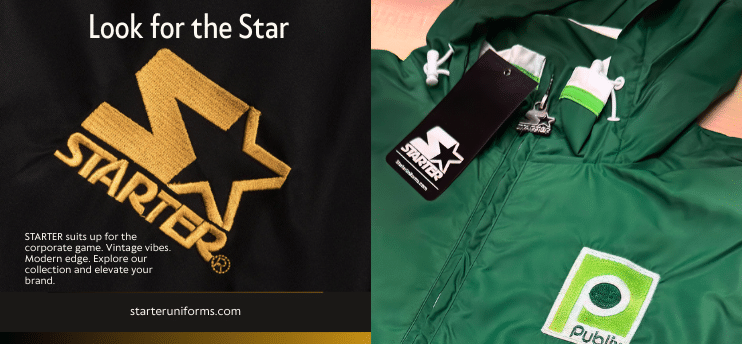Here we go again.
In 2023, Target found itself in the crosshairs of the culture wars over its annual Target Pride merch collection. Although the Minnesota-based retailer had been selling Pride merch for a decade already, its 11th annual collection drew protests and calls for boycotts from conservatives, as well as threats to store employees. In response, Target pulled items from store displays, sparking backlash from LGBTQ+ advocates.
ICYMI: Pride Merch: ‘Rainbow-washing’ Or Real Support?
Last week, Target confirmed that the reduced in-store presence of its Pride merch will continue this year, with locations selling the goods based on “guest insights and consumer research.” The complete collection will be available online starting May 28, although the company indicated that it will be a smaller array of items than last year.
The 2024 Target Pride collection will include adult apparel, home products, food and beverages – but not children’s clothing, which was a flashpoint in 2023.
Although a Target spokesperson said in a statement to various news outlets that the company is committed to supporting the LGBTQ+ community, many advocates are unhappy with what they see as caving to negative pressure and abandoning the company’s tradition of support.
“With LGBTQ+ people making up 30% of Gen Z, companies need to understand that community members and allies want businesses that express full-hearted support for the community. That includes visible displays of allyship,” Human Rights Campaign President Kelley Robinson said in a statement. “Target’s decision is disappointing and alienates LGBTQ+ individuals and allies at the risk of not only their bottom line but also their values.”
More than 140,000 people have signed a MoveOn petition accusing Target of “rainbow capitalism” and exhorting the company to sell Pride merch in all its stores. One signer commented, “If you’re going to make money off of me you better stick with it.”
Target is in a tough spot. It and other brands, including Bud Light, drew boycotts after high-profile partnerships with LGBTQ+ creators and influencers last year. The company cited employee safety as a top concern, and the FBI and Department of Homeland Security issued a warning May 10 that foreign terrorist organizations may target LGBTQ+ events and venues this year.
But backing away from these partnerships also runs the risk of alienating Gen Z, which comprises about a quarter of the U.S. population, as more than 1 in 4 Gen Z adults in the U.S. identify as LGBTQ+. PPAI research shows that 81% of Gen Zers value diversity, equity and inclusion, so companies should ensure their products and marketing campaigns are inclusive and reflective of diverse perspectives.
On LinkedIn, Sarah Kate Ellis, president and CEO of GLAAD, said the organization’s data “shows that Americans are twice as likely to buy or use a brand that publicly supports LGBTQ people and our rights, as well as the fact that over 50% of Americans believe that business leaders should lead the charge when it comes to equality.”
Although its merch is the most visible element of Target’s Pride efforts, the retailer has reiterated that it has no plans to withdraw from local Pride events around the country, and the company has donated more than $2 million to LGBTQ+ organizations over the past decade.


